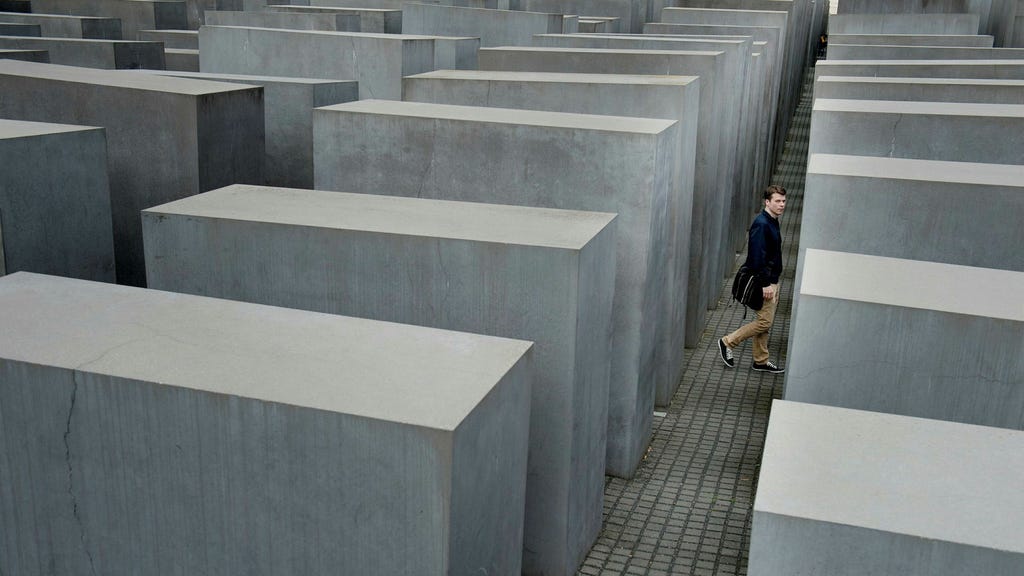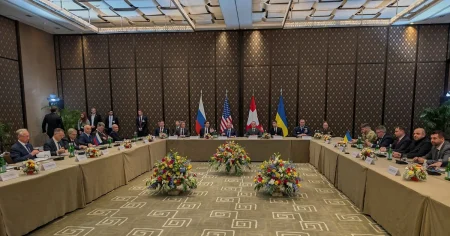The author recounts an anecdote of overhearing a man proudly proclaiming himself an anti-fascist at a Berlin horse-riding arena, juxtaposing this with the fraught political climate in Germany, particularly regarding immigration and the legacy of Nazism. The incident serves as a springboard to dissect the complexities and apparent contradictions within German politics. A recent parliamentary debate saw the Christian Democratic Union (CDU) attempting to pass stricter immigration laws with the support of the far-right Alternative for Germany (AfD), sparking accusations of opening the “gates of hell” and drawing parallels to the historical appeasement of Hitler by President Hindenburg. The author argues that the debate, however, sidestepped the actual content of the proposed legislation, focusing instead on the implications of collaboration with a right-wing party.
This hypersensitivity to any perceived association with the far-right stems, according to the author, from Germany’s relentless self-examination of its Nazi past (Vergangenheitsbewältigung). The national identity is deeply intertwined with this ongoing process of acknowledging, understanding, and accepting the consequences of its history. This contrasts sharply with Russia’s historical amnesia, which the author links to the invasion of Ukraine. Germany’s historical burden, however, has shaped its foreign policy, leading to a reluctance to criticize Israel’s human rights record and an ambivalent stance on supporting Ukraine against Russian aggression. This hesitance, the author believes, is rooted in the prioritization of Germany’s own interests, particularly avoiding any appearance of warmongering, even at the expense of Ukraine’s sovereignty.
The author suggests that the CDU members who abstained from voting on the immigration bill were also motivated by self-preservation, prioritizing the avoidance of association with the far-right over the substance of the policy. This political paralysis is likened to the post-war “Finlandization” of the author’s native Finland, where a pragmatic survival strategy of appeasing the Soviet Union eventually morphed into a political tool for avoiding difficult decisions. The irony, the author points out, is that while thousands protested against fascism in the wake of the parliamentary debate, there is no comparable outcry for increased support for Ukraine, a country facing an invasion by a regime exhibiting fascistic tendencies.
The central question posed by the author is why Germany, a democratic, open, and successful nation that has absorbed a significant number of refugees, remains so demonstrably anxious. While acknowledging the obvious link to the Second World War, the author suggests that there’s a sense of comfort in this self-imposed historical constraint. This allows Germany to maintain a specific self-image, both internally and internationally. This adherence to a narrative of historical responsibility can, paradoxically, serve as a shield against taking decisive action in contemporary geopolitical crises.
The author’s observations paint a complex picture of German political psychology. The legacy of Nazism acts as a powerful lens through which all political actions are scrutinized, leading to a heightened sensitivity to even the slightest hint of right-wing association. This, coupled with a focus on self-preservation and maintaining a pacifist image, can result in political inertia and a hesitance to take strong stances on international issues, even when principles of democracy and self-determination are at stake. The author contends that this cautious approach, although understandable given Germany’s history, can have unintended consequences, potentially hindering effective responses to global challenges.
This dynamic plays out in the context of a broader European political landscape where collaboration with nationalist parties is becoming increasingly normalized in some countries. Germany’s historical baggage, however, makes such partnerships politically toxic, contributing to a sense of exceptionalism and reinforcing the narrative of Germany as a unique case. The tension between the need to confront the past and the desire to navigate present-day political realities shapes not only domestic discourse but also Germany’s role on the world stage, creating a complex and often contradictory set of political priorities.














